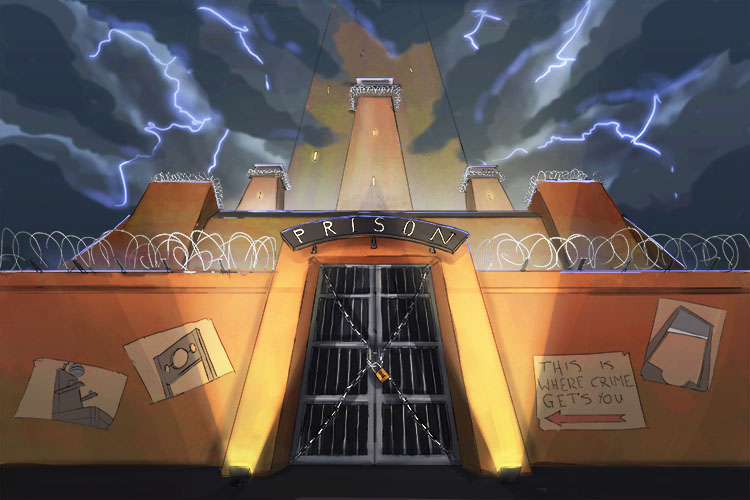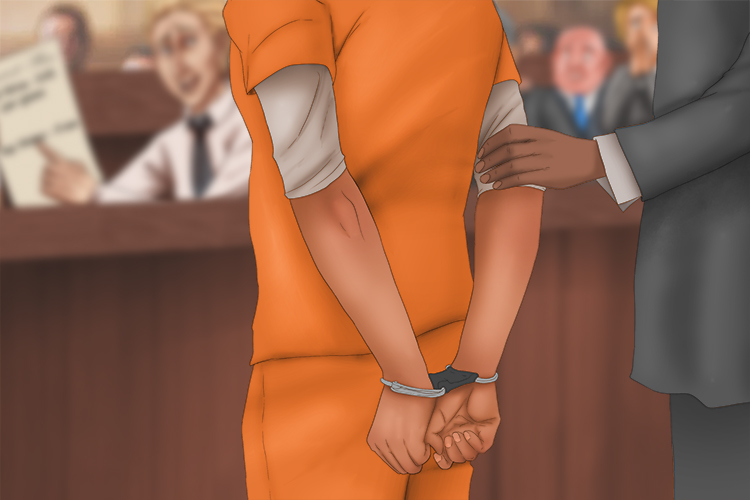Deterrence – The threat of punishment as a way to put a person off committing a crime
To remember the meaning of the term Deterrence, use the following mnemonic:
The state was determined to stop people thinking about committing an offence (deterrence), so it built big, ominous prisons as a warning.

The prospect of being called to account for a criminal act can put people off the idea of committing some types of crime. This is called deterrence.
Crimes that can be deterred in this way are usually ones that require some forethought, such as burglary and premeditated murder.
Deterrence is not always a factor: for example, people who get drunk and then cause trouble or those who suddenly lose their tempers and assault someone do not consider the possible consequences beforehand.

The three major elements of deterrence are the probability of arrest, the probability of conviction, and the severity of punishment.
There are two types of deterrence: specific and general. Specific deterrence applies to an individual offender who is prosecuted, punished and therefore less likely to commit further crime for fear of receiving further similar or more severe punishment. General deterrence is the fear of prosecution and punishment that helps hold people back from committing crimes in the first place.
Statistically, states with more religious populations tend to have less crime. Religious attendance is associated with direct decreases in both minor and major forms of crime to an extent unrivalled by government programmes.
That is not to say that religion acts as a deterrent, but that religious beliefs generally (but not always) tend to affect behaviour for the better.




